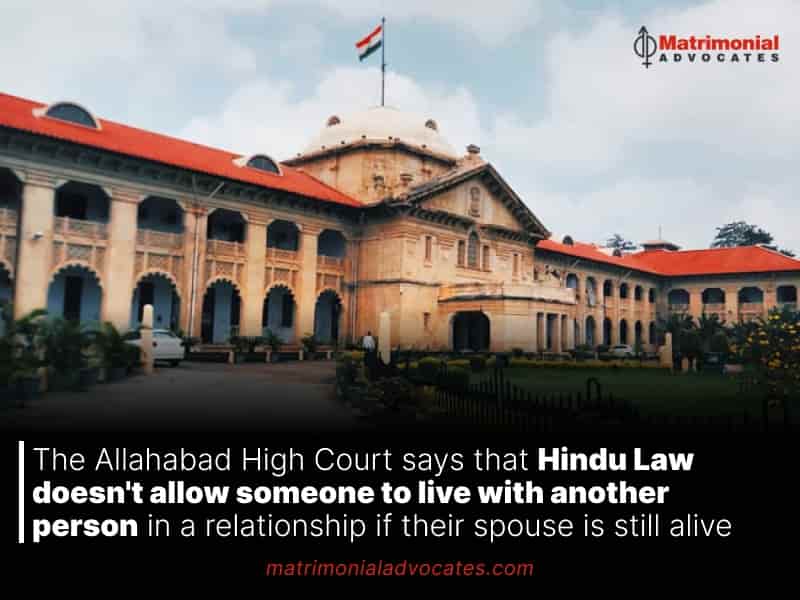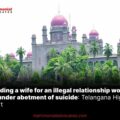
The Allahabad High Court has recently stated that Hindu Law doesn’t permit people with spouses still alive to have illicit live-in relationships that go against legal norms. Justice Renu Agarwal’s bench pointed this out while dismissing a protection plea from a couple living together without getting divorced from their spouses.
“The court could not protect such type of relationship which is not supported by law. If the court indulges in such type of cases and grants protection to illegal relationship, then it will create chaos in the society, hence such type of relationship cannot be supported by the Court,” the court observed as it emphasised that such relationship cannot be supported by the orders of the Court.
The Court deliberated on a writ petition filed by Raksha (petitioner no. 1) and her live-in partner (petitioner no. 2), who sought police protection against respondent no. 4 (alleged husband of petitioner no. 1) and his family members. According to the petitioners, petitioner no. 1’s parents had arranged her marriage with respondent no. 4 when she was just 13 years old and still a minor. They contended that this marriage was null and void, and currently, petitioner no. 1 was willingly involved in a live-in relationship with petitioner no. 2. In opposition to their plea for protection, the Standing Counsel representing the state argued that since petitioner no. 1 is already married and hasn’t obtained a divorce, her relationship with petitioner no. 2 cannot be sanctioned by the Court. The Standing Counsel also referred to a judgment from a Co-ordinate Bench of the High Court in the case of Suneeta And Another vs. State Of U P And 3 Others 2023 LiveLaw (AB) 204, where the Court had expressed disapproval of such conduct using the following language:
“But no law abiding citizen who is already married under the Hindu Marriage Act can seek the protection of this Court for an illicit relationship, which is not within the purview of the social fabric of this country. The sanctity of marriage pre-supposes divorce. If she has any difference with her husband, she has first to move for getting separated from her spouse as per law applicable to the community if Hindu Law does not apply to her”
Given these circumstances, the Court acknowledged that petitioner no. 1, having not taken any steps to dissolve her marriage after reaching adulthood and remaining legally bound to respondent no. 4, cannot enter into a relationship with another person. The Court stressed its inability to condone such illegal conduct, stating that endorsing such actions could imply approval of illicit relationships, potentially harming societal norms. It expressed hesitation in indirectly endorsing such misconduct by granting police protection. Consequently, the petition was dismissed, with the judge clarifying that the decision was not a condemnation of live-in relationships per se but rather of unlawful relationships.
In recent developments, the Allahabad High Court rejected a protection plea from a couple cohabiting without divorcing their spouses, imposing a fine of Rs. 2,000. The court highlighted that endorsing such relationships through judicial support could disrupt societal harmony and weaken our nation’s social fabric.
Last month, the Allahabad High Court denied a protection plea from a married woman and her live-in partner, stressing that the Court cannot shield such “illegal relationships.” Justice Renu Agarwal also imposed a fine of Rs. 2,000 on the petitioners, cautioning against the potential societal turmoil that could arise from judicial protection of such unlawful liaisons.





